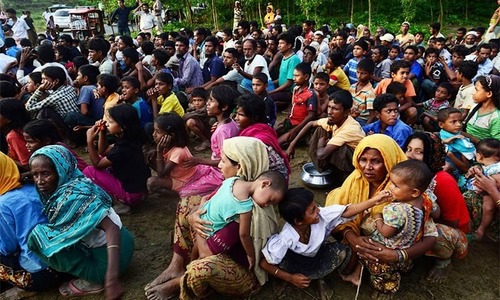AS a weapon of war, rape is used to orchestrate sexual violence as a way to impose the most extreme humiliation on victims.
In August last year, a brutal ethnic cleansing campaign by Myanmar’s army displaced hundreds of thousands of Rohingya from Rakhine state. Extensive testimonies from survivors sheltering in Bangladesh’s refugee camps described the systemic rape and killings.
Nine months on: the search is on for Rohingya babies born of rape
Among the many rape victims are those whose babies will be born this month, according to aid groups preparing for a spate of births and abandoned infants.
With most women hiding their pregnancies fearing the stigma, humanitarian agencies warn of an imminent ‘child protection crisis’.
Although doctors have treated hundreds of rape cases in the past months, research estimates two-thirds of traumatised women have not reported their ordeal.
Take a look: 21 Rohingya women recall rape horrors perpetrated by Myanmar security forces
Without exact figures of pregnant victims, coupled with a shortage of post-rape care and increasing unsafe abortions in overcrowded camps, a health crisis is inevitable.
Reportedly with few resources, aid agencies should focus on short-term measures, including emergency health service provision and shelters for women shunned by their families.
Survivors must receive medical and psychological assistance so that children already born in these circumstances, or those who will be in the next few weeks, are not discarded as ‘rape’ babies.
Although the UN has placed Myanmar’s army on a watch list of security forces and armed groups suspected of using rape in conflict, there must be an internationally led investigation into these crimes so that evidence can be presented before the International Criminal Court.
Knowing that extreme violence was visited upon women, the global community must ensure the perpetrators will never again act with impunity.
From the rape of women in Bosnia to mass rape in Sudan’s Darfur region, there are many bone-chilling examples of sexual violence being perpetrated to destabilise communities.
This is because women’s lives and bodies have been perceived for too long as acceptable collateral damage in conflict. For this to end, justice and restitution are imperative.
Published in Dawn, May 19th, 2018














































